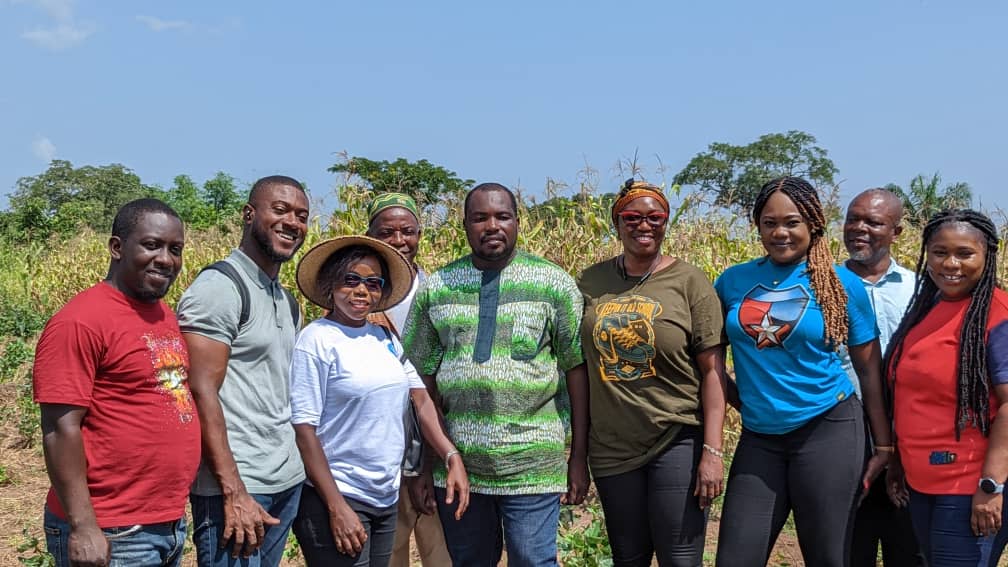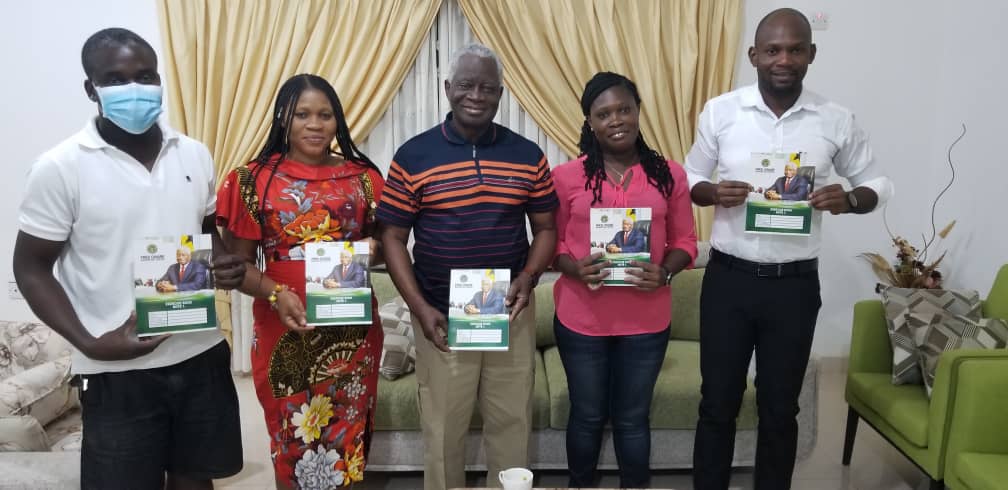The world is at a crossroads, as the decisions and actions we take over the next eight years (in the years ahead) will either reverse or exacerbate the detrimental impacts of Climate Change on our planet and people. Though Africa is the least responsible for the climate problem, we are one of the most afflicted, and the agricultural sector is one of the most hit.
With unpredictable weather patterns influencing crop and animal output, the continent faces serious food security challenges if climate change is not handled sooner rather than later.
For decades, agriculture has been hailed as the backbone of major economies around the world. However, in order to achieve economic freedom as well as increase production to feed our growing population, farmers frequently engage in improper agricultural practices, which have a negative impact on the environment. For these and other reasons, four 2021 Mandela Washington Fellows from Ghana decided to form The Enviroo Ghana and apply for the Alumni Engagement and Innovation Fund (AEIF) offered by the International Research and Exchanges Board (IREX) to educate smallholder farmers in two major farming communities on sustainable agricultural practices that will not only help them combat the effects of climate change on their crops and environment, but will also afford them better yield and business (sustainability)improvement.
The year-long initiative, which is being carried out in the Greater Accra Region’s Ningo Prampram District and the Oti Region’s Biakoye District, aims to train, and support 100 smallholder farmers in the following areas:
1. Educate and equip small-scale farmers on the negative impacts of poor agricultural practices on their enterprises, human lives, and the environment.
2. Ensure year-round farming sustainability through the availability and affordability of viable seeds, fertilizer and chemicals.
3. Protect the environment and climate from improper chemical usage and disposal of chemical packages.
4. Create a safe climatic environment (through agroforestry) to ensure sustainable business and human growth.
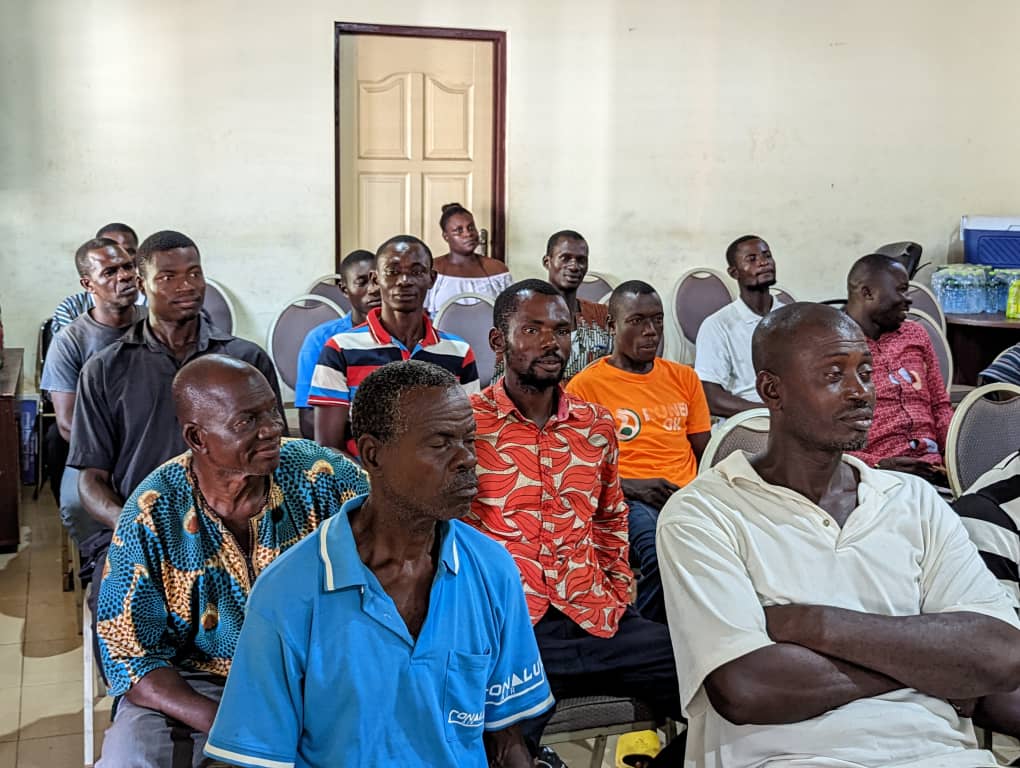
The project’s first phase, which involved providing farmers with training and seedlings, took place over two consecutive weeks, from November 16, 2022, to November 19, 2022, and from November 22, 2022, to November 29, 2022, in the districts of Ningo Prampram (Dawa), and Biakoye (Kwamekrom), respectively. The farmers received instruction on how to use agrochemicals and fertilizers properly on their fields to increase productivity. They also practiced intercropping, utilizing cash crops like mango, cashew, and coconut to cover their crops (especially vegetables) and maintain the right temperature in the land.
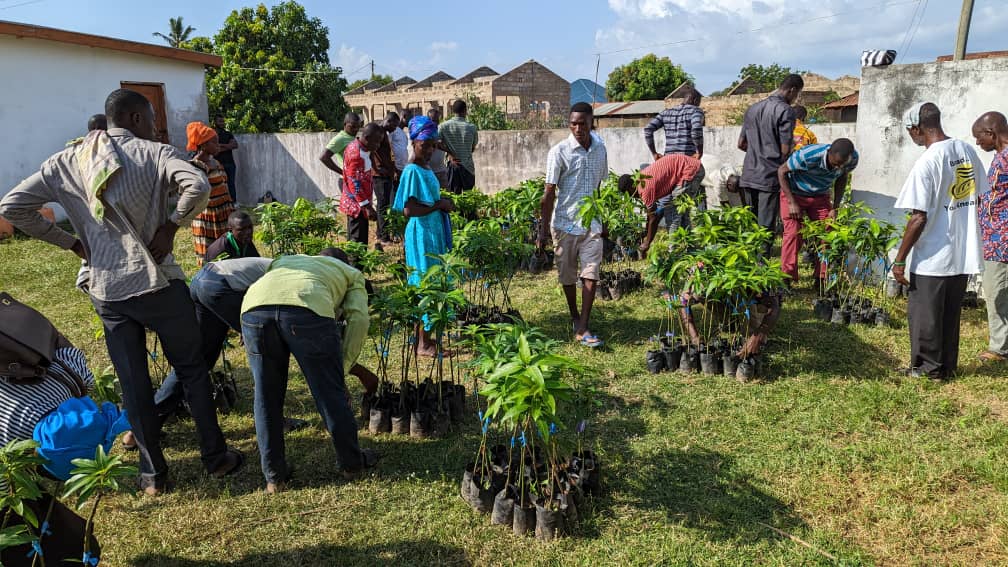
Farmers who engage in year-round farming were chosen in collaboration with the Agric departments of the two district assemblies for the training and receipt of the seedlings. They will also assist with ongoing monitoring and evaluation to ensure that each farmer achieves the best results possible with regard to the proper planting of the seedlings received and applying the knowledge learned from the experts.
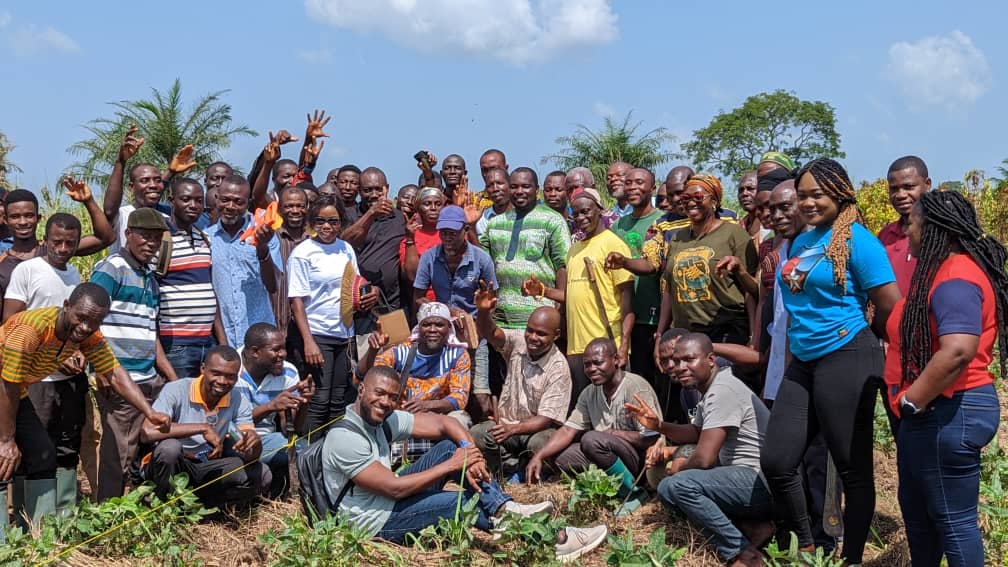
The lessons were well received by the participants, who pledged to follow the advice of the experts and make the project a success in order to draw more similar support projects into their communities. Participants were very impressed, enthusiastic, and appreciative of the lessons and seedlings shared.
The Ensuring Sustainable Agriculture through Climate-Smart Practices Project was executed by team members of the The Enviroo Ghana with donor support from the US State Department, US Embassy Ghana and IREX.
